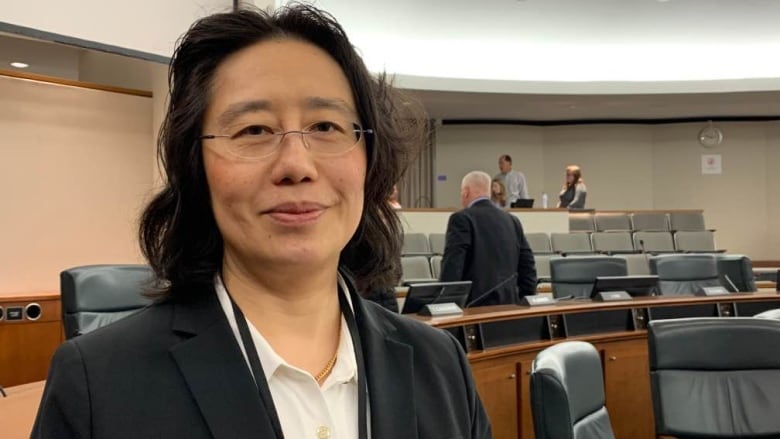COVID-19 case rates on the rise again in Waterloo region as 25% of all residents remain unvaccinated
'Vaccinate right away. Its not too late,' Dr. Hsiu-Li Wang says

COVID-19 case rates are on the rise again in Waterloo region and across the province, which has led medical officer of health Dr. Hsiu-Li Wang to again call for people who are unvaccinated to get immunized against the virus.
During a regional council committee meeting on Tuesday, Wang said the rise in cases is attributed to the loosening of restrictions in Step 3 of the provincial reopening plan as well as the ongoing spread of the delta variant, also known as the B1617 variant first detected in India.
"The battle against COVID-19 isn't over. We need everyone to help prevent or reduce the impacts of a fourth wave by following public health measures and getting vaccinated," Wang told regional councillors. "Vaccinate right away. It's not too late."
Wang said about 83,000 people in Waterloo region aged 12 and up have not yet received their first dose of the vaccine.
As well, she said 82,000 young people aged 11 and under cannot yet get their vaccine and aren't expected to be able to get a first dose until the end of this year or early in 2022.
The region said in 2020, the community's population was 623,930, which makes the number of people who are not immunized approximately 25 per cent of the entire population of the region.
People who are immunized are less likely to become ill from COVID-19 and they're also less likely to spread it, Wang said.
20 new COVID-19 cases
Region of Waterloo Public Health reported 20 new COVID-19 cases on Tuesday. There was one new death of a person with the virus reported, which brought the total number of COVID-related deaths in the region to 285.
There were 143 active cases in the region. There were 11 people in the region's three hospitals who were infectious with the virus and 12 people were in the intensive care unit. People in the ICU included those who were infectious and those who had recovered from the virus but still required specialized care.
There were 11 active outbreaks:
- Workplaces: Nine.
- Hospital: One.
- Child care: One.
Ontario reported 321 new cases of COVID-19 on Tuesday.
Vaccinations
Vickie Murray, who is the director of pharmacy at Grand River Hospital and St. Mary's General Hospital in Kitchener and also the lead of operations for the vaccine distribution task force, said regional staff have started to email, text and call people who have had one dose of the vaccine and who are past the 28 days they have to wait for a second dose.
She told councillors they needed to give second doses to 7,752 more people to reach the goal of having 75 per cent of all people aged 12 and older fully vaccinated.
"We expect to meet that target within the week," Murray said.
The two vaccination buses run by the region have been successful in reaching people needing first and second doses, she added. Approximately 30 per cent of people who go to the buses are getting their first dose, she said.
Murray noted a bus will be at the following locations later this week:
- Friday from 12 p.m. to 4 p.m. at Floradale Public School in Elmira.
- Saturday from 9 a.m. to 11 a.m. at Forward Church,55 Franklin Blvd. inCambridge.
- Saturday from 12 p.m. to 2 p.m. atCambridge Centre Mall.
Murray said the region is also working with primary care doctors to give them more access to the vaccine so they can talk to patients about it and administer it to people who would like it.
"Additional resources will be focused on vaccine hesitancy to improve our ability to educate and support those who have questions about vaccine safety and effectiveness," she said.












_(720p).jpg)


 OFFICIAL HD MUSIC VIDEO.jpg)
.jpg)



























































































